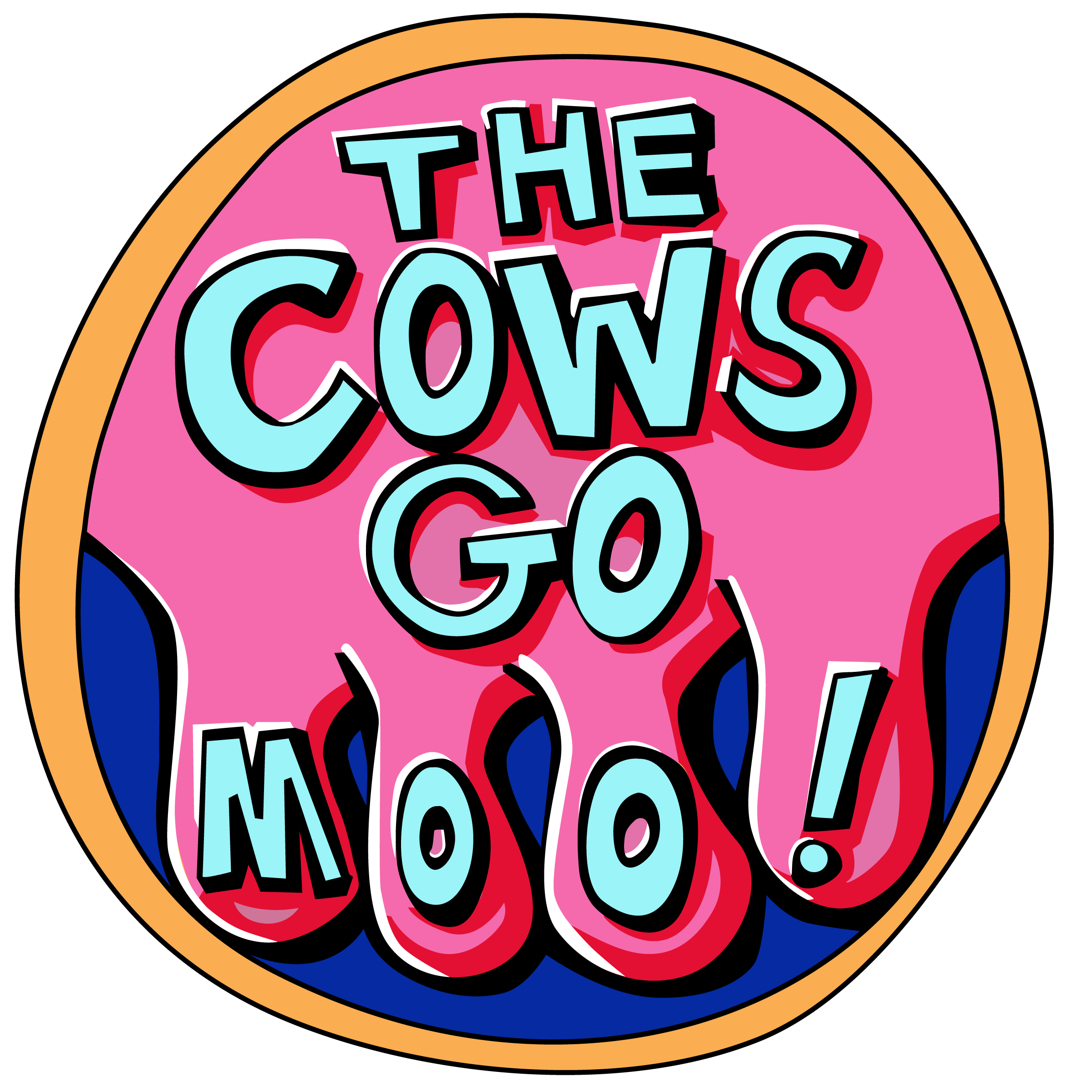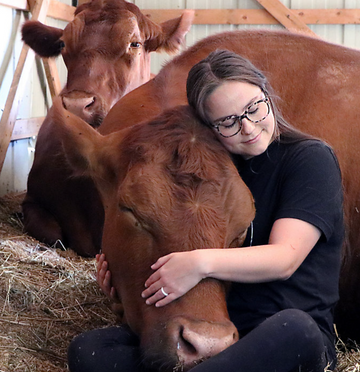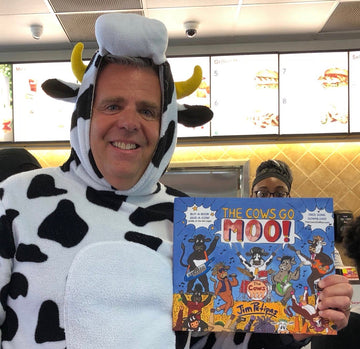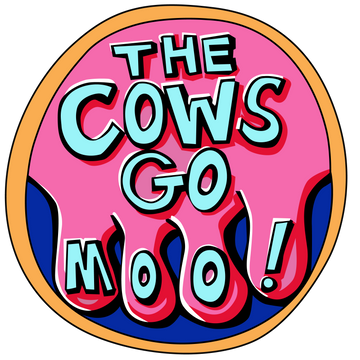Have you ever given much thought to how amazing cows are?
Now is a great time to start. When I was seven years old I had a chance to visit my Uncle Vincent’s cow farm in Nova Scotia, Canada. Ever since that trip I have been fascinated by cows! Cows are gentle animals who are affectionate, emotional and intelligent. Not too long ago I was able to stand in midst of a large herd of Black Angus cows and two Highland Cows. The mother Highland cow in the photo above is Blondie and her calf is Brownie! Getting up close and personal with a cow and touching them was a pretty amazing experience. Today I not only appreciate cows but I love them, so much in fact that I write and illustrate books and write and sing songs about them! If you don’t know much about our bovine friends, here are 10 things about cows that may astound you:
1. Cows are Smart
The idea that cows are dumb is a myth. Cows are actually very intelligent, curious and able to think critically and solve problems. Studies have shown that cows are capable of learning associations and using past experiences to determine their future actions. When faced with a challenge, cows get very excited with elevated heart rates and brainwaves. Some cows even jump in the air as if they are yelling, “I did it!”
2. Cows Remember Everything
If you find yourself in the presence of a cow, be nice to her because she will remember you. Cows have great memories and are very good at remembering and recognizing faces even after long periods of time. Cows also have good spatial memory. They can remember where things are located such as food, water, shelter, best grazing spots and most importantly, the location of their babies.
3. Cows are Highly Emotional
Even cows have mood swings. They are unhappy when the weather is bad and practically smiling when it’s sunny outside. Like humans, cows seek pleasure and love to play. When let outside after being cooped up for too long, cows run, prance and jump with joy. Sometimes, however, a cow just wants to be left alone because she’s not feeling well and isolates herself from others. Cows can be moody and sensitive. They may dislike certain individuals and can hold a grudge for years against other cows and people who have crossed them.
4. Cows Form Close Friendships
Cows form strong bonds and friendships, choosing to spend much of their time with just a few preferred individuals. They even have best friends. Studies have shown that when cows are with their BFFs (Bovine Forever Friends), their stress levels decrease, and when separated from them, their stress levels increase. Cows help each other, learn from each other and make decisions based on compassion and altruism. They even form grooming partnerships where they can do each other’s hair.
5. Cows Can Be Popular
It may sound a bit like high school but cows have a social hierarchy like a Queen Bee…uh, Cow! There is often one cow in the herd who is seen as the boss and who dictates behavior to the rest of the cows. Any cows that don’t follow the leader will become isolated from the herd. When new cows are introduced to a well-established herd, she will have to network and build relationships until she is accepted into the pack.
6. Cows Love Their Babies
The most powerful relationship for a cow is that between a mother and baby. Cows have strong maternal bonds and are attentive, protective and loving parents. When allowed, a mother cow may nurse her calf for as long as three years. The mother-child bond continues after weaning; mothers and their children remain close to each other for life. There is also a sense of maternal community as other cows in the herd will help nurture calves if necessary.
7. Cows Grieve Deeply
Because cows form such strong bonds with their loved ones, it is only natural that they show signs of grief when separated from them. When a calf is taken away, the mother will cry, and bellow for hours, even days, and fall into a deep sadness. Mother cows will search for their babies, visibly distressed, just as the calves cry for their mother.
8. Cows Say More Than Moo!
While cows do “moo” to “cowmmunicate,” they also use different body positions and facial expressions. Another way cows “chat” is by mimicking each other’s actions. If one cow gets up from eating and starts walking across the field, other cows may get up and follow. This group behavior and networking is a type of communication between the cows.
9. Cows are Affectionate and Forgiving
If you have never given a cow a belly rub, you should put it on your bucket list. Cows, like dogs, love to be petted, stroked and scratched behind the ears. They are very loving and welcome interactions with kind people. Even cows who have been mistreated or abused in the past can heal over time, forgive and learn to trust people again.
10. Cows Can Live Up to 20 Years
When cows are not raised for providing meat, their natural lifespan can be up to 20 years. That is over 4 times the life expectancy of cows used for food. To determine the age of a cow a farmer looks into its mouth and checks the incisors at the very front. A calf, like a human child, has baby teeth (or “milk teeth”) that loosen and fall out. These are whiter and narrower than the adult versions, which only begin to emerge after 15 months. Once these teeth are fully in, the cow is deemed to be at least 30 months old. The age of cattle is determined mostly by the examination of its teeth, and less perfectly by the horn rings or the length of its tail.
Now that you know so much about cows, be sure to go meet one! Visit one of the many cow farms where cows can be visited, learned about, and maybe even give one a belly rub! I promise it will be a “moo-ving” experience.
Mooya!
Lead information: Rhea Parsons, https://www.onegreenplanet.org/animalsandnature/things-to-love-about-cows/






